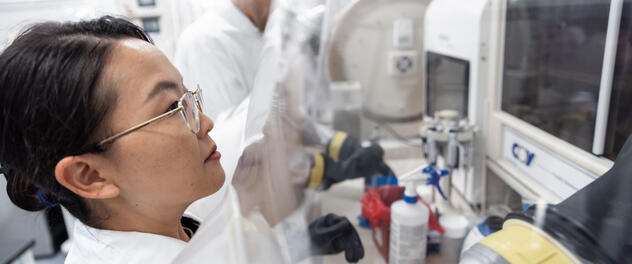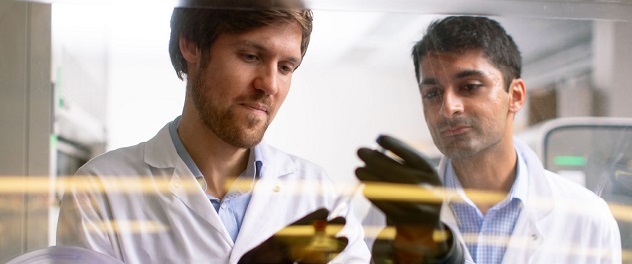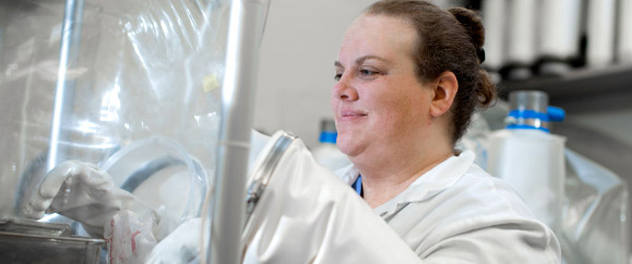-

A window into gut physiology
The Gut Microbiome Lab explores how microbes affect intestinal permeability and secretion using an Ussing chamber.
-

Decoding microbial signaling
Dr. Kashyap's Gut Microbiome Lab explores the molecular pathways that microbial metabolites trigger and the role of these pathways in host physiology.
-

Discovering microbial metabolites that promote gut function
Dr. Kashyap's Gut Microbiome Lab leverages bioinformatic pipelines to uncover microbial metabolites that enhance gut function and promote overall health.
-

Unlocking the potential of the microbiome for better health
Dr. Kashyap's Gut Microbiome Lab harnesses matrix-assisted laser desorption ionization — time of flight (MALDI-TOF) technology to identify human-derived bacteria that could improve health.
-

Using preclinical models colonized with individual or groups of microbes
Dr. Kashyap's Gut Microbiome Lab studies the impact of the gut microbiome on gastrointestinal physiology and function using preclinical models colonized with individual or groups of microbes.
Overview
Dr. Kashyap's Gut Microbiome Lab studies how gut microbes influence health and disease.
The human gastrointestinal tract is home to trillions of microbes that coexist harmoniously with their hosts, performing essential functions critical for maintaining health. Disruptions in microbial function can trigger processes that contribute to the pathophysiology of various diseases, including disorders of the gut-brain axis, Clostridioides difficile colitis, as well as inflammatory and neoplastic conditions.
Projects in the Gut Microbiome Lab focus on understanding the complex interactions between diet, gut microbiome and host physiology. These projects aim to move the field beyond associations to defining the functional role of gut microbes in regulating host physiology.
The laboratory uses germ-free mouse models in conjunction with measures of gastrointestinal physiology in vitro and in vivo to investigate the effects of gut microbial products on host gastrointestinal function. In parallel, they use a systems approach incorporating multi-omics, patient metadata and physiologic tissue responses in human studies to help discover novel microbial taxa and metabolites that affect the key regulators of gastrointestinal function.